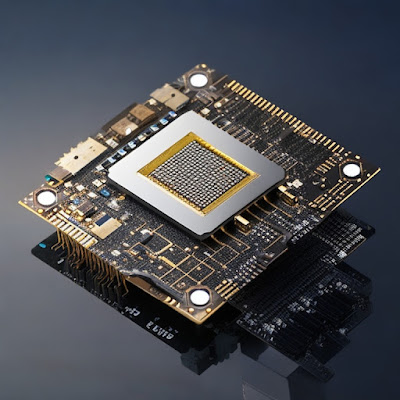In recent times, OpenAI, the organization famed for its creation ChatGPT, has delved into the domain of artificial intelligence hardware, eyeing the potential of crafting its unique AI chips. This bold step arises from a dire necessity: addressing the scarcity of high-grade AI chips, which form the cornerstone of OpenAI's ambitious projects. The journey encompasses evaluating potential acquisition targets, fostering alliances with established chipmakers like Nvidia, and pondering over the grand idea of building its bespoke AI chip.
The decision is yet on the horizon, awaiting the green signal from the internal echelons of OpenAI. The clock has been ticking since last year when the discourse around mitigating the chip shortage commenced. The chip dilemma is a twofold challenge for OpenAI, tackling both the scarce supply of advanced processors and the exorbitant costs tethered to their procurement and operation.
OpenAI's CEO, Sam Altman, underscores the criticality of acquiring more AI chips, reflecting his concerns publicly regarding the scant availability of graphics processing units (GPUs), the lifeblood for running AI applications. The market, majorly under Nvidia's dominion, poses a tough landscape for OpenAI to navigate.
The path towards self-reliance in AI chip production is laden with high stakes, with a ticket price of hundreds of millions per annum, a venture demanding not just financial muscle but a steely resolve to venture into the uncharted. Taking a leaf from tech behemoths like Amazon and Google, who have ventured into custom chip design, OpenAI too contemplates this colossal stride.
The narrative takes an intriguing turn with the mention of a potential acquisition, reminiscent of Amazon's playbook with the acquisition of Annapurna Labs in 2015, a move that propelled its chip development endeavor.
The venture is a long-haul, with several years on the timeline before OpenAI can reap the fruits of its labor, or the acquisition, should it materialize. In the interim, commercial providers like Nvidia and AMD continue to be the torchbearers.
The race for AI chip supremacy is not devoid of hurdles, as evidenced by Meta's ordeal in custom chip development. Yet, the flame of innovation burns bright, with even Microsoft, OpenAI's substantial backer, joining the fray with its custom AI chip under development.
The narrative unfolds amidst a surging demand for specialized AI chips post the launch of ChatGPT. The road ahead is a blend of strategic alliances, potential acquisitions, and relentless innovation as OpenAI embarks on this monumental journey towards AI chip autonomy.


No comments:
Post a Comment